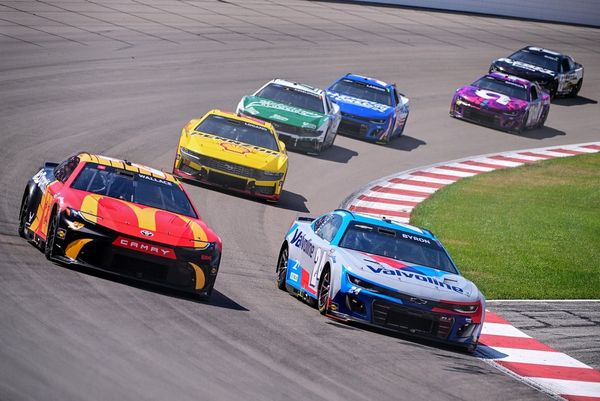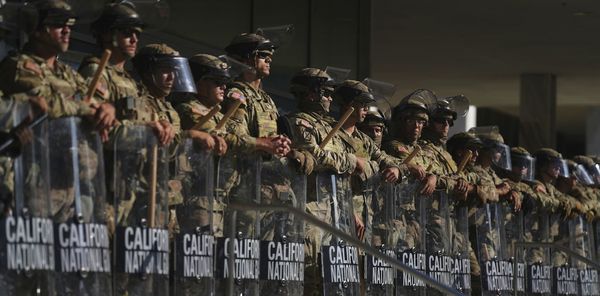
From Mustang Sally to Thelma & Louise, the car has always been a potent symbol of freedom in American pop culture. In the postwar boom years, buying one became a rite of passage; through the drag race, the drive-in and the courtship ritual of parking up at make-out point, cars were inextricably linked with adolescence and rebellion.
While pop music has always celebrated this idea – the current success of Jonas Blue’s dance remix of Tracy Chapman’s Fast Car showing its enduring resonance – it has also used the emotional power of the car as a way of exploring the depths of emotion: often hurt, betrayal and loss. Like love, the automobile promises freedom and excitement, but it doesn’t always deliver. In the re-evaluation of Prince’s work after his death, a lot of people rediscovered the wonderful Little Red Corvette from the album 1999, a paeon to a doomed affair that uses the car as a metaphor for beauty and unattainability.
Here is Prince’s gem, along with six more songs that use cars to express something deeper than the promise of the open road.
Little Red Corvette – Prince
Prince often sang about unconventional, sexually adventurous women with whom he would have wild and brief relationships. In this song, the car is a symbol for his lover: beautiful but wilful and fiercely individual. It begins with a wonderful analogy: “I guess I should have known by the way you parked your car sideways that it wouldn’t last.” It’s such a brilliantly expressive image, like the opening line of a Raymond Carver short story about some doomed love affair. From here, he plays with car, sex and relationship metaphors, singing about slowing down, taking the wheel, running the body into the ground. It’s almost a morality fable, though – a warning that if the Corvette doesn’t slow down, something bad may happen.
Fast Car – Tracy Chapman
Forget Jonas Blue’s ramped-up tropical house version. A young black woman singing about cars felt like a subversive act amid the testosterone-soaked rock music culture of the 1980s – and Chapman’s career-defining track puts a massive dent into the idea of the automobile as escape pod. The narrator thinks she’s finally free from the drudgery of small-town life when she gets her partner to drive her into the big city – but what she finds is poverty and disillusion. The song is downbeat and desperate, inspired partly by Chapman’s own working-class upbringing in Cleveland, Ohio – but it has a wonderful trick: as the chorus kicks off and we hear the words, “I remember we were driving, driving in your car / The speed so fast I felt like I was drunk,” the tempo suddenly picks up like a car accelerating. We almost feel the whoosh, pushing us back into the seat. This exhilaration makes the closing images even more effective: the narrator ends up working crappy jobs alone with her kids, while her absentee partner decides whether to “leave tonight or live and die this way”. Devastating.
Racing in the Street – Bruce Springsteen
Brought up in Freehold, New Jersey, surrounded by gas stations, factories and farms, Springsteen has spent his life singing about working men trapped in dead-end towns, desperate for escape. Featured on his acclaimed 1978 album Darkness at the Edge of Town, Racing in the Street is a funeral dirge for the idea of the car as saviour. The narrator spends his days tuning his ‘69 Chevy, then driving it across the state competing in street races for money; meanwhile, his girlfriend stays at home alone, her youth and dreams ebbing away. The critic Greil Marcus once wrote that this song takes the teenage drag racers eulogised by the Beach Boys and finds them 15 years later: no freedom, no glory, just another dumb race, another trawl “from the fire roads to the interstate”. The song is rich in yearning and tension, slowly building towards a crescendo that never arrives: a sad, wonderful synthesis of theme and composition. And when Springsteen ends with the lines “Tonight my baby and me we’re gonna ride to the sea and wash these sins off our hands,” it’s not clear whether the couple are heading toward salvation or suicide.
Don’t Worry Baby – Beach Boys
It is completely fitting that this beautiful, fragile song appeared on the B-side of I Get Around. While that track celebrates the machismo culture of the drag race, Don’t Worry Baby, is about a boy who brags about his car and ending up in a racing challenge that could ruin his reputation or get him hurt. Fortunately, his girlfriend is there to care for him, reassuring him with that perfect line, “If you knew how much I love you, baby, nothing could go wrong with you.” Brian Wilson has said that he wrote the song almost as a sequel to the Ronettes classic Be My Baby, somehow answering Ronnie Spector’s romantic vulnerability. The result is both a moving critique of macho posturing and also a love song about a woman giving strength to her pea-brained boyfriend.
Boys of Summer – Don Henley
Co-written by Henley and Mike Campbell of the Heartbreakers, this is another song that takes an askew glance at the surf and sunshine culture of those early Beach Boys tracks. Here, the passing of the summer provides a bitter metaphor for the narrator’s lost love – and lost youth. “Those days are gone forever,” he drawls, “I should just let them go.” Cars crop up twice as important symbols. Early on, Henley recalls his former girlfriend in her convertible, the top pulled down, the radio on, the classic Californian stereotype. Later, though, is the song’s most arresting line: “Out on the road today I saw a deadhead sticker on a cadillac.” Henley saw the incongruity of this expensive conservative motor car emblazoned with Grateful Dead merchandise – it was about his generation selling out, spending the 60s talking about revolution and the 80s voting for Reagan. In the video, we see scenes of happy couples on sun-kissed beaches, but these are all projected onto the walls behind the actors; even Henley himself is shown at the close to be on a vast movie screen. Everything is artificial – his memories, the open road, maybe even his girl.
Style – Taylor Swift
Although widely appreciated as a triumphant electropop anthem, Style actually starts like a sinister noir road movie: “Midnight, you come and pick me up, no headlights / Long drive, could end in burning flames or paradise.” Like several other songs on 1989, there is an unavoidable undercurrent of doom, with the car ride symbolising the uncertainty of the relationship: this guy isn’t entirely trustworthy, he’s probably seeing another woman, and all the imagery in the song links him with darkness. Like pretty much all of the affairs on this album, disaster lurks along the road somewhere, and that driving synthetic bassline is the engine that takes us there.
Taillights Fade – Buffalo Tom
One of the great songs of the grunge era, Taillights Fade is basically a loser’s lament; a guy down on his luck, lost, alone and broken – probably staring back at a failed relationship: “I’m singing about my past / Had myself a wonderful thing / But I could not make it last.” The car in the title is the singer’s own: “I feel so weak on a losing streak / Watch my taillights fade to black.” Does this mean he’s driving away alone into the darkness, or that the battery is dying, the light slowly fading? Either way, it’s a pretty grim metaphor for his emotional state, and Buffalo Tom use the patented Pixies’ loud-quiet-loud song structure to wring out every emotion from this fragment of memory.







